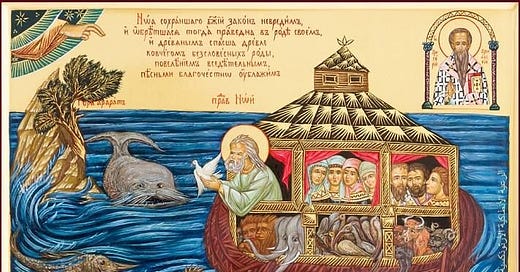(Note: As is customary, every 4th or 5th post I set aside as thanks for paid subscribers. As usual, I am putting about half of this post out in a “free preview” with the remaining half behind a paywall. However, this post is over 6,000 words long and Substack informs me it that it actually exceeds Gmail’s 102…
Keep reading with a 7-day free trial
Subscribe to Holy is He Who Wrestles to keep reading this post and get 7 days of free access to the full post archives.




